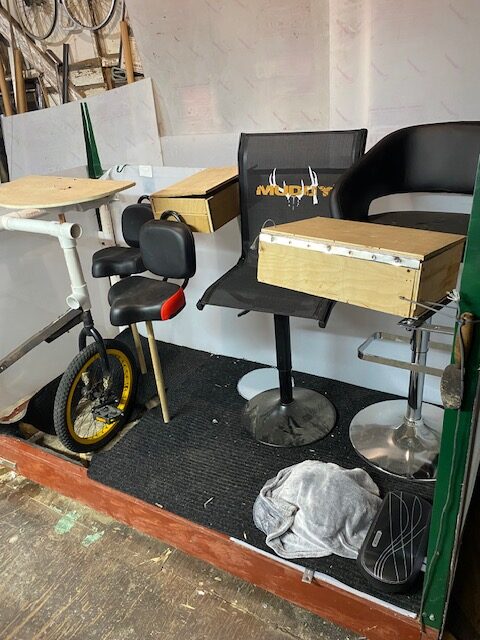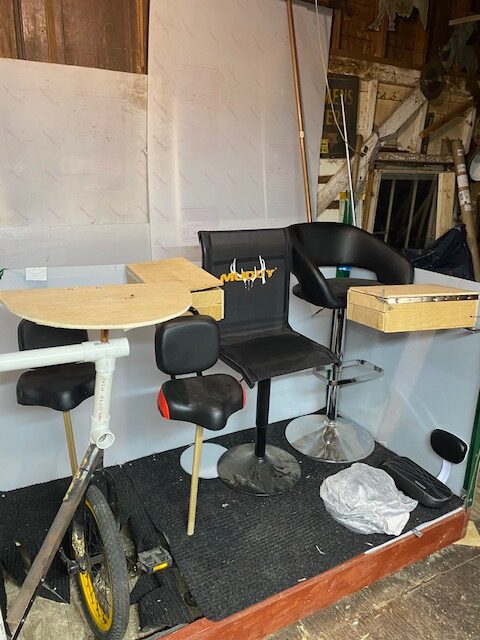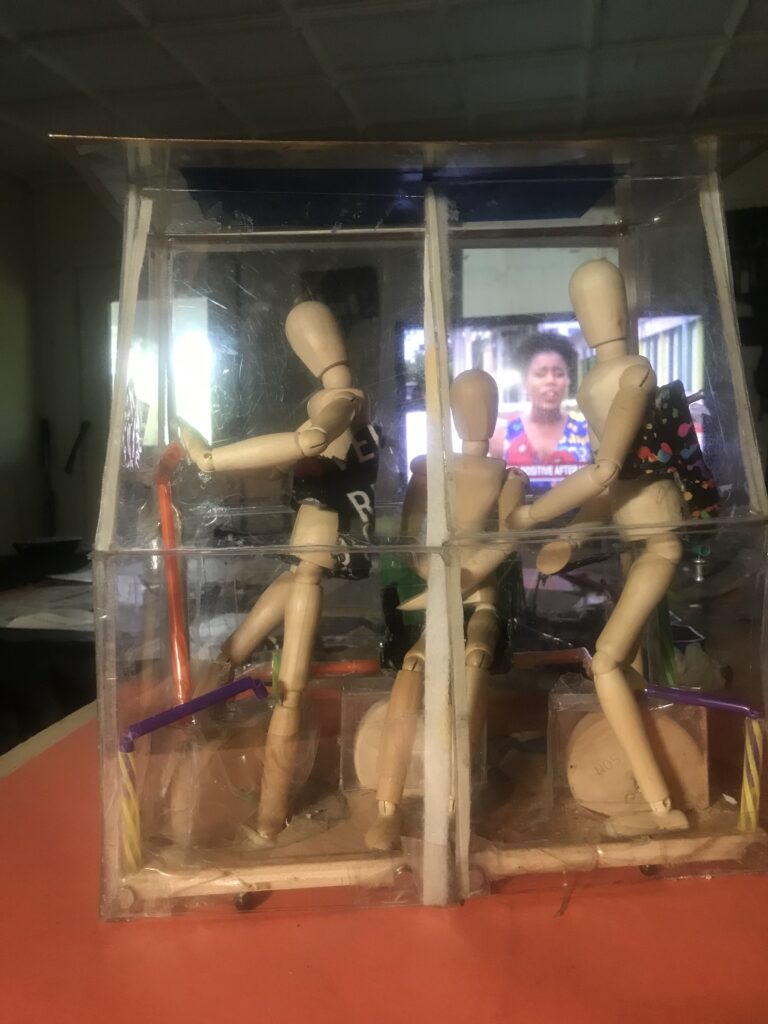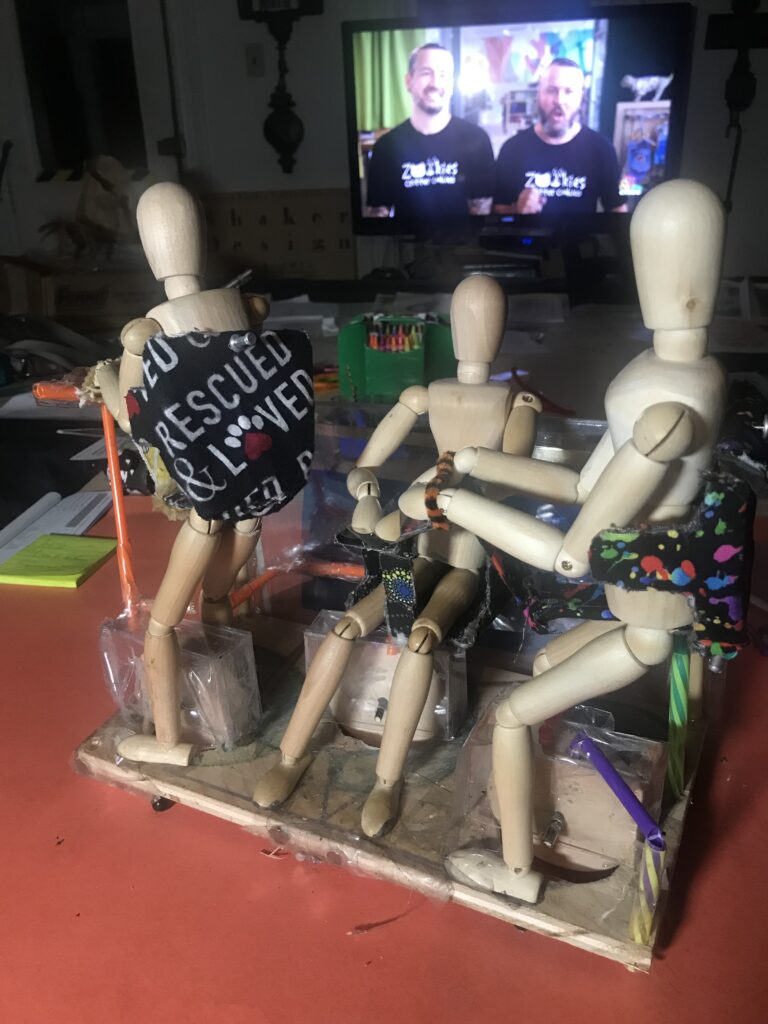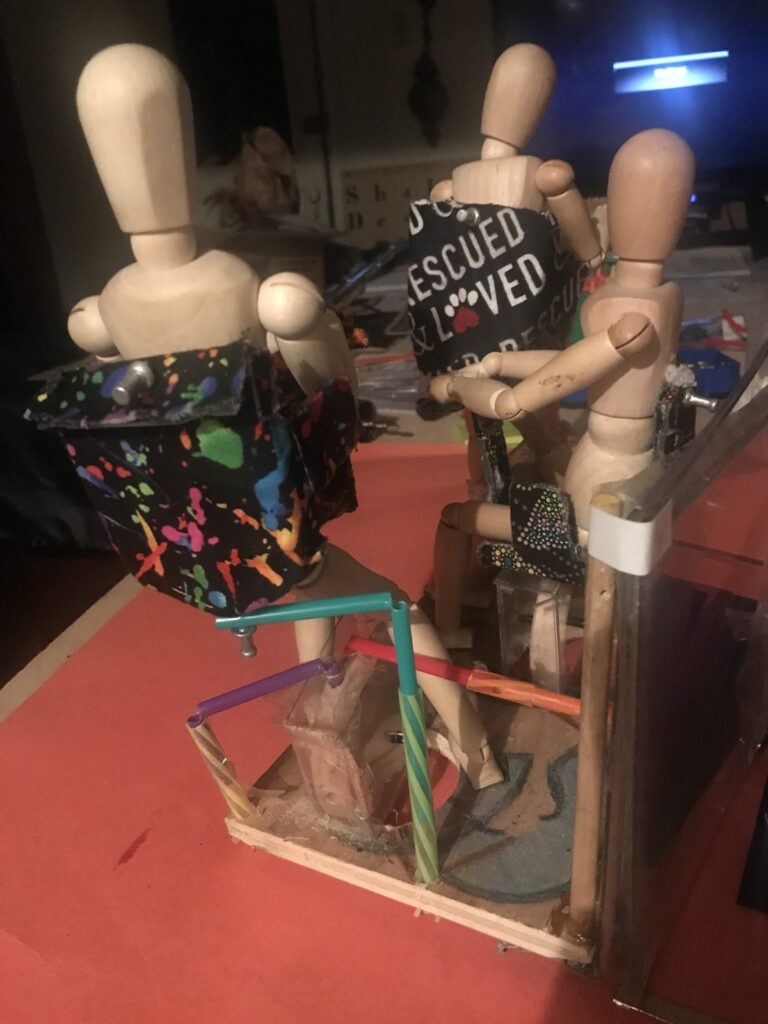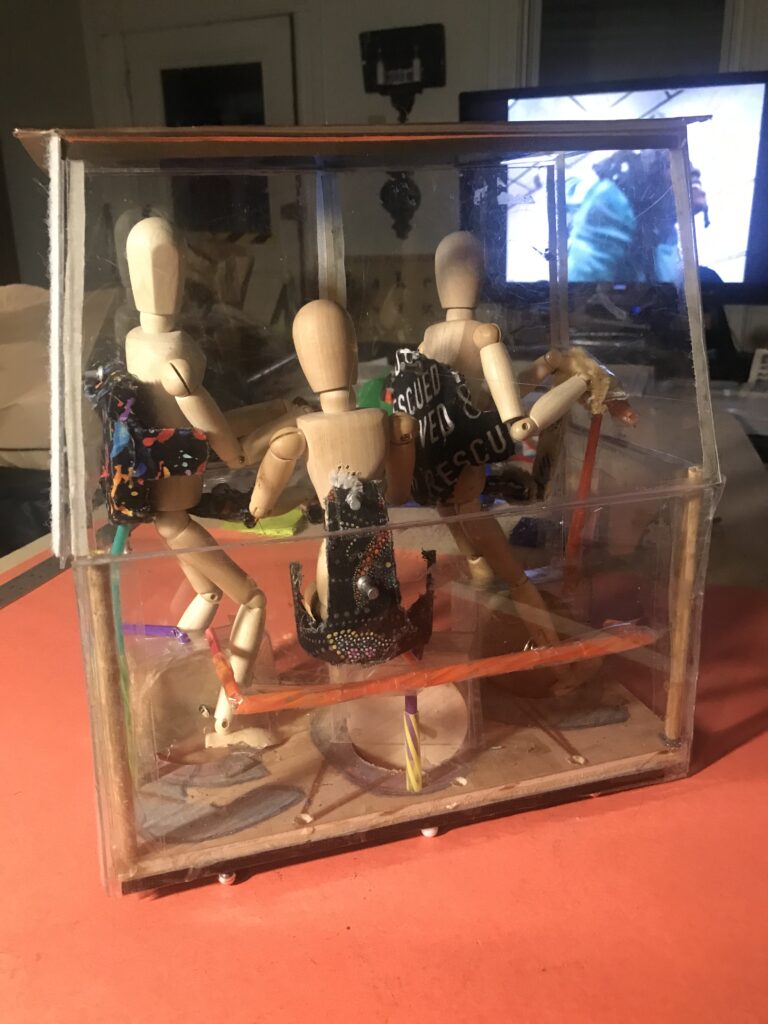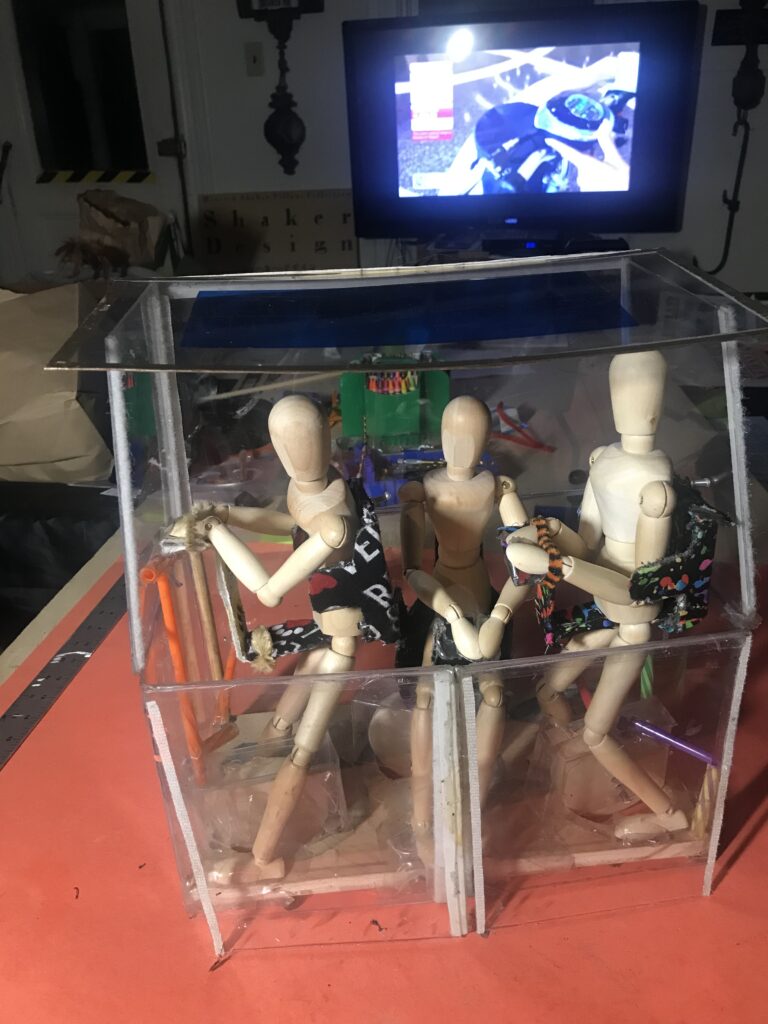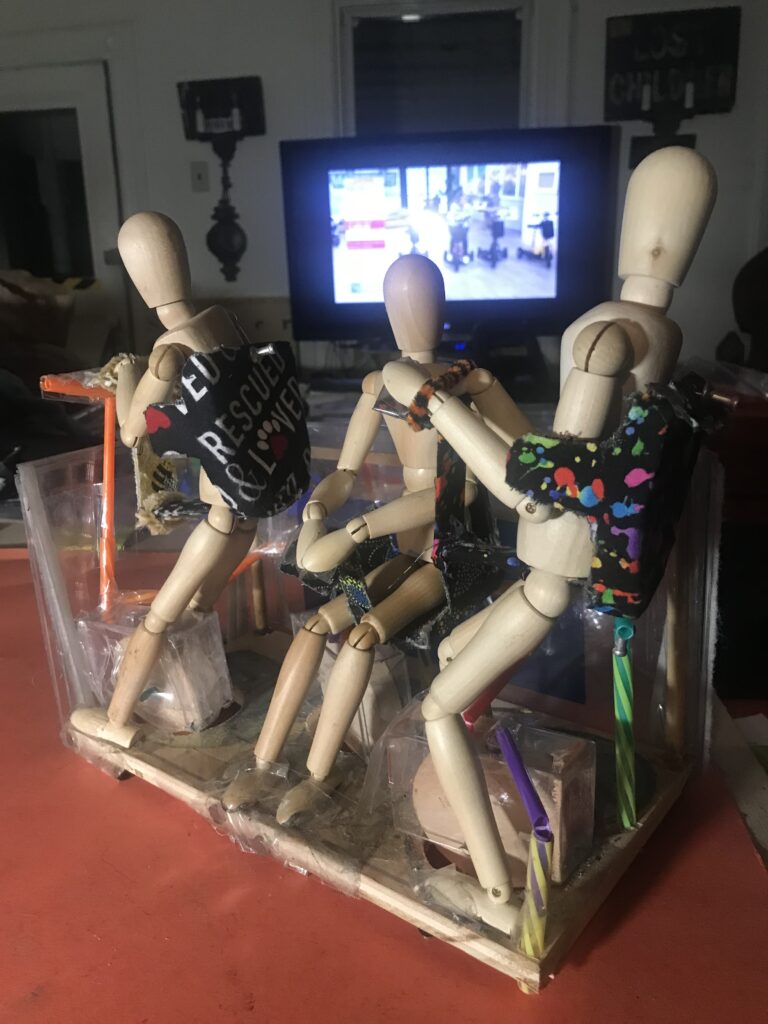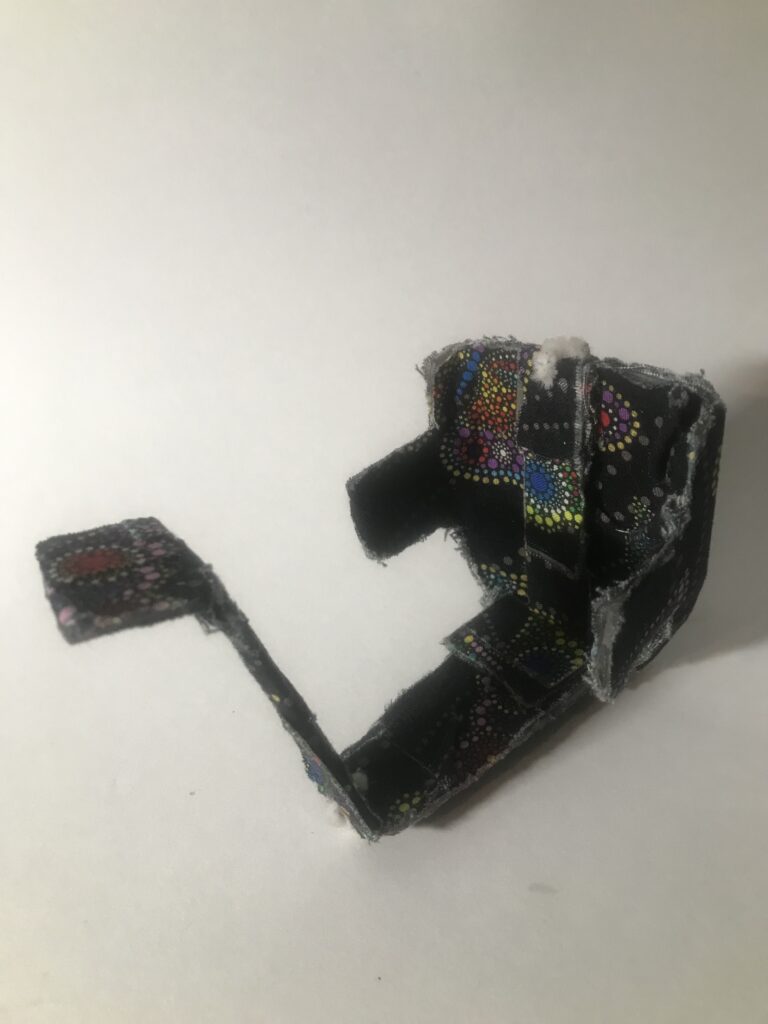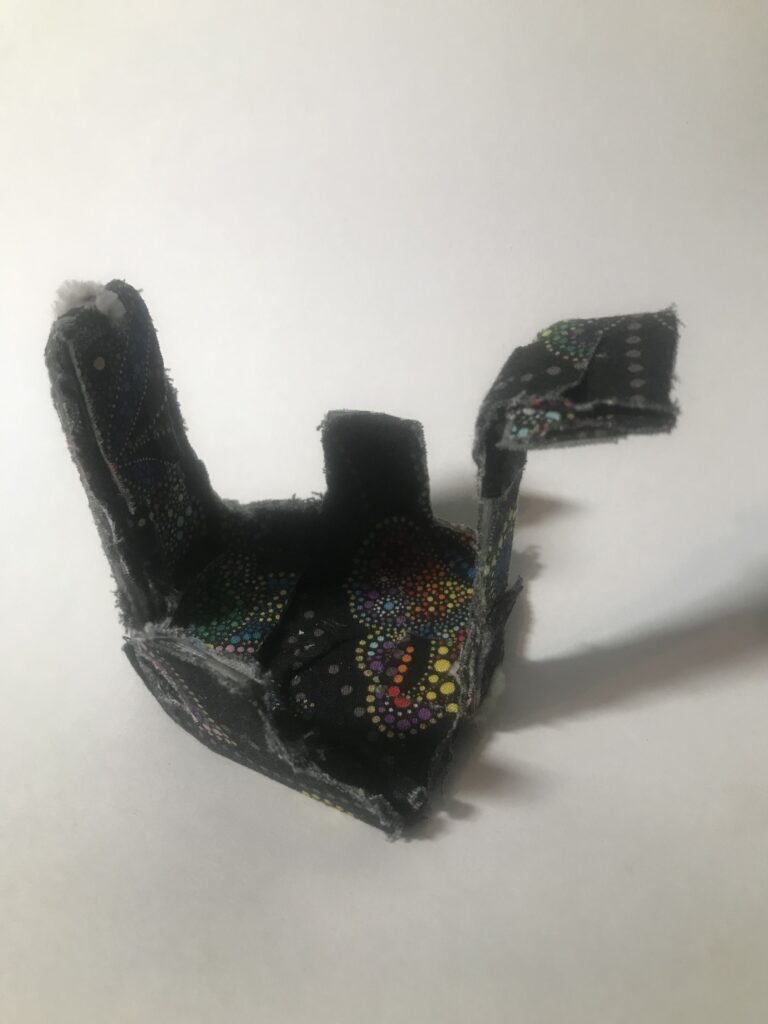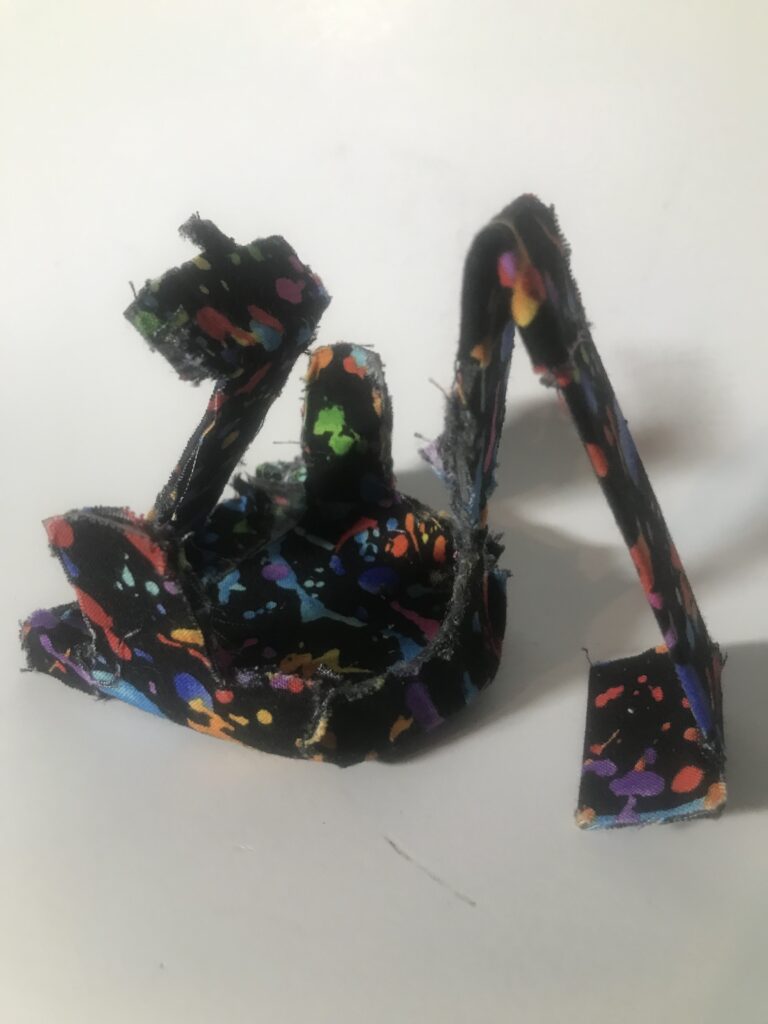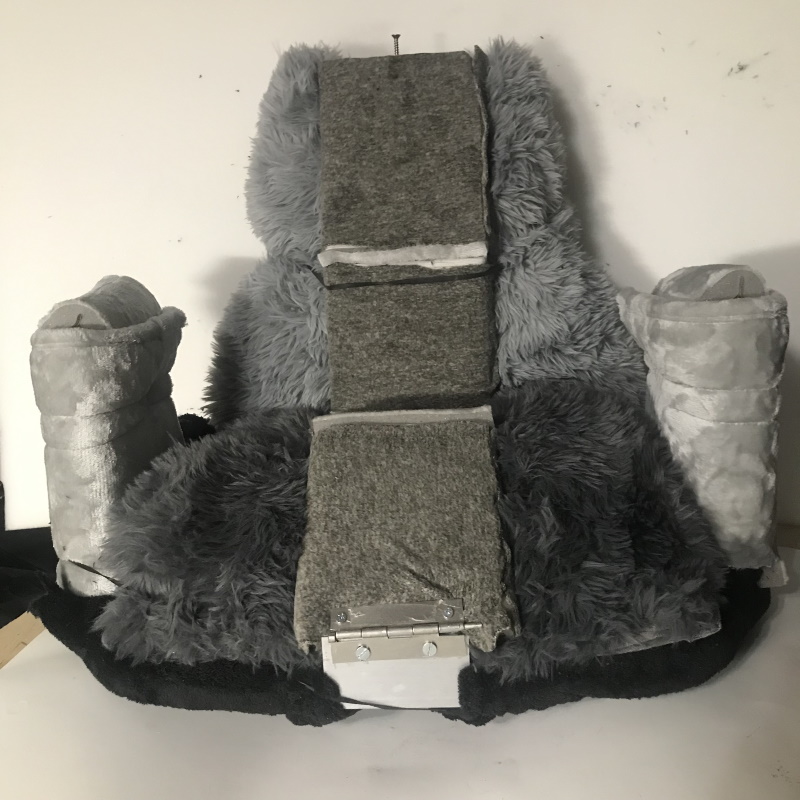A Trike. 3’ x 6’ x 6’ tall.
It can be wide open to the air or fully enclosed in a folding polycarbonate shell. It may carry one, two, or three people. One drive wheel is an anchored-in-place, pedal-able unicycle, the two others are hub-motor equipped, electric-powered wheels. The vehicle can travel, facing either the three or the six-foot side, either tandem-style or the more sociable side-by-side. The seats, and wheels, all pivot and move, easily, to enable this to happen. Use in dense urban spaces is what is expected here, and at a maximum speed of 15-20 mph to ensure safe operation.
The wheels are all linked together so that when facing the six-foot side, with the pedaler steering, all the wheels turn together. When facing the 3’ side, the pedaler steers and the back wheels go straight, as in all trikes. Batteries are stored under the vehicle, which can be charged in place or slide out like a drawer and be rapidly replaced. A solar panel acts as a roof as well as a source of power. When an opening above is preferred it can be temporarily stored, with the rest of the body, alongside the wall. The hinges are aluminum, covered by colorful fabric. Closings are Velcro and magnets. Seats are well cushioned and sprung, mounted on tubes that are anchored to the floor. They can be adjusted for height and face any direction, as well as be tilted, to allow for the most comfortable, supported, standing/leaning posture, or made level. Drive wheels are under polycarbonate covers, both for passenger safety and comfort and to maximize weatherization when enclosed. These structures are part of the wheels’ “forks”, turn with them and help stabilize them.
Current regulations in New York State demand that electric bikes and trikes be no wider than 36”, thus this design. Careful study suggests a limit of 48” wide, or even up to 72”, with a corresponding stretching of the length to 10’ or so, will eventually be regarded, in crowded cities, as optimal for many purposes. For example, this would permit wheelchairs to be transported properly on such a vehicle, or several passengers or a healthy load of cargo to be accommodated safely and comfortably. The OH is meant to test the absolute minimum of space and materials that must be required to begin to accomplish these tasks. There are considerable benefits to exploring this, with the lowest level of consumption and simplicity of design, as one answer that offers a wide variety of rewards. It is not necessary to consider this as the only or best answer to this challenge, but it is, rather, a suggested first step in the right direction.
There is a 3/4” plywood floor, to which are attached aluminum poles, and steel angles. Poles anchor additional aluminum tubes, keeping seats and wheels in their proper places. Has appropriate lights, mirrors, and all other necessary equipment. The polycarbonate cover can be deployed partly, as desired, and the entire shell folds flat and can be stored alongside the back, This can be used as a personal vehicle, or for carrying passengers or cargo, as it is, without major modification. A full-scale working prototype is under construction.
Two 10″ hub motors and a unicycle:
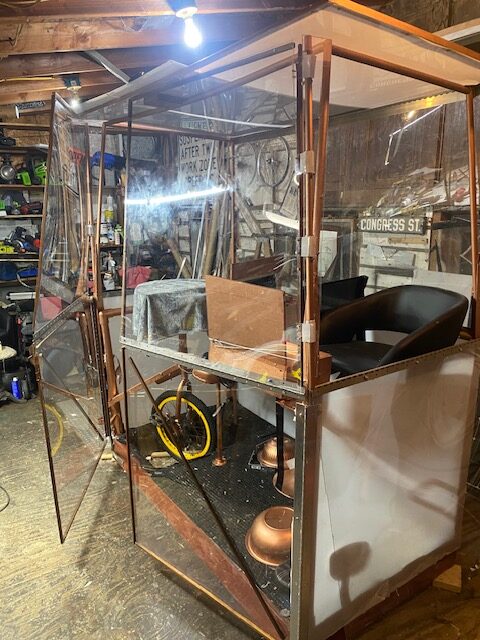
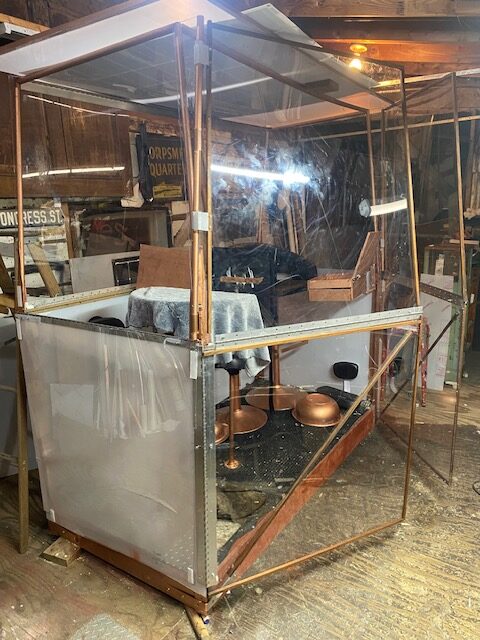
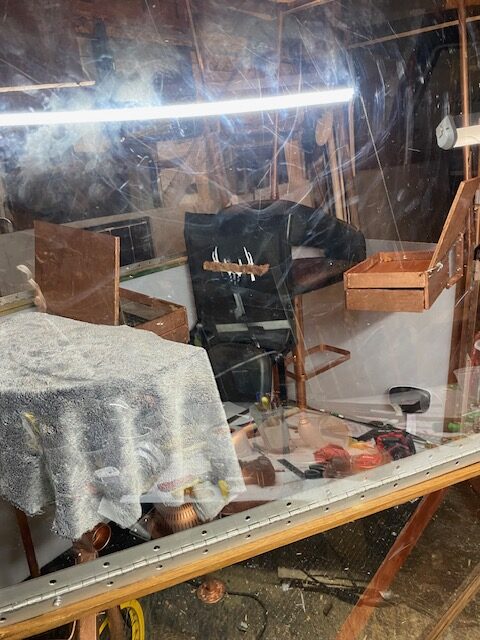
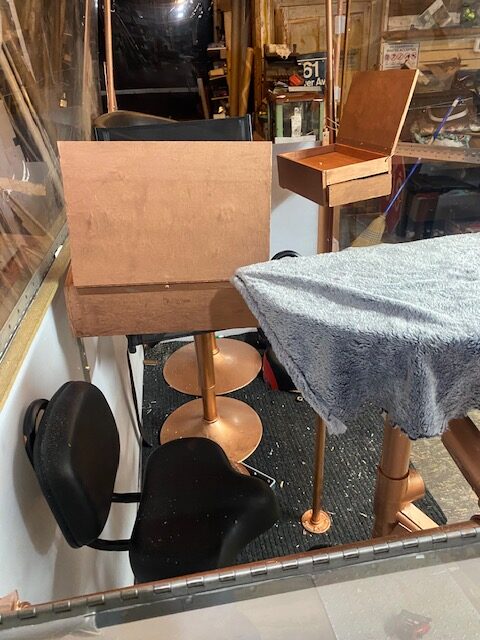
For all further information, please contact:
Email: StevenStollman@gmail.com
Tel.: 1 212 431 0600


